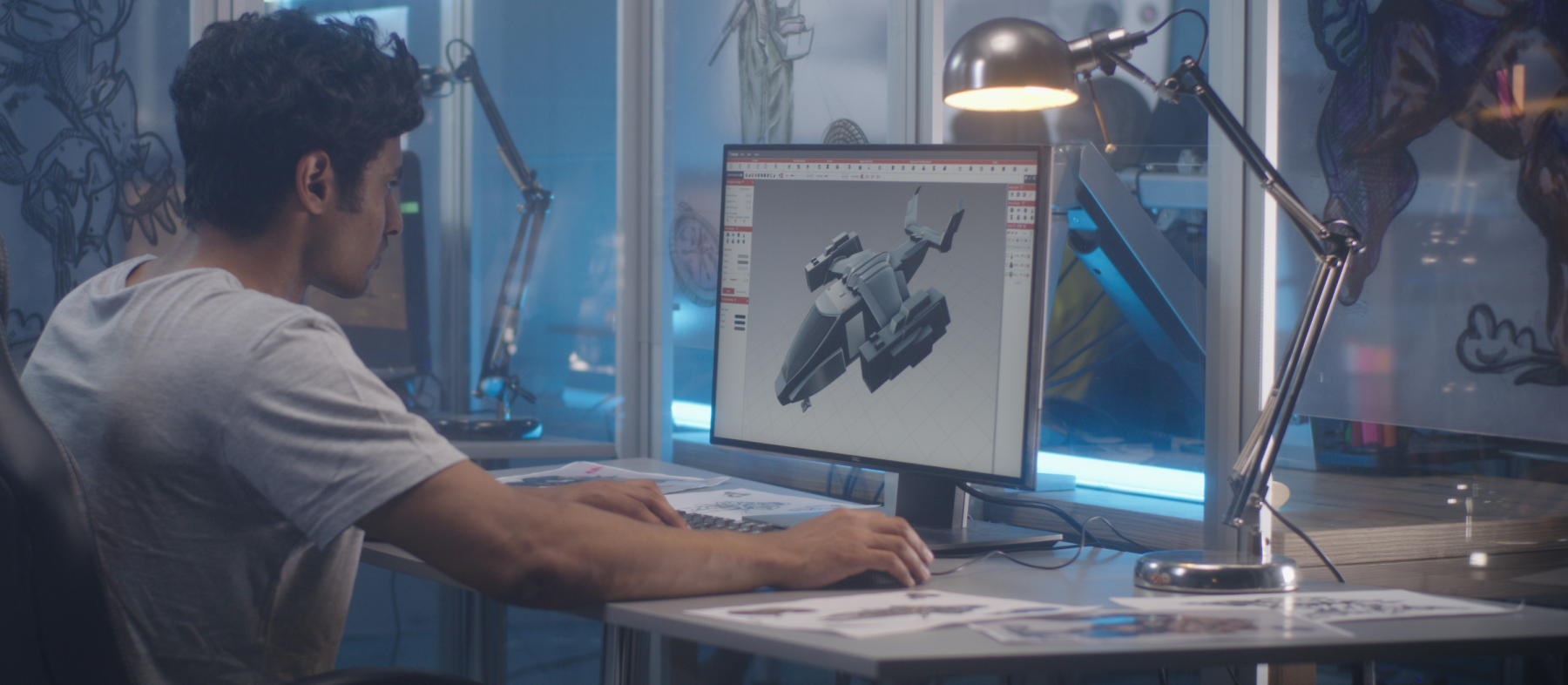The Interactive Media Game Design option at QCC utilizes the latest in computing technologies to prepare students for the ever changing digital world. Learn the process of developing a video game from the pre-production stage all the way through finalizing post-production goals and objectives.
Program Overview
What Will You Learn?
Associate of Science
This program will prepare you to enter the game design field or advance your education by means of transfer to a four year institution. You will leverage industry standard hardware and software to gain the knowledge required to join an ever changing gaming industry.
Cost
In-State Tuition: $223/credit
Out-of-State / International Tuition: $429/credit
Some programs have additional program fees
Timeline
4 Semesters
61-62 credits
Learn Online
This program may be completed 50% or more online.
Requirements
- High School Diploma or GED/HiSET.
- English: Placement into college level English.
- Mathematics: MAT 100 with a grade of “C” or higher or appropriate placement score.
Locations
- This program may be completed at QCC Worcester (Main Campus).
- This program may be completed face-to-face.
Curriculum
Career Stats
Have more questions?
We're here to help! Reach out to the following for support.

